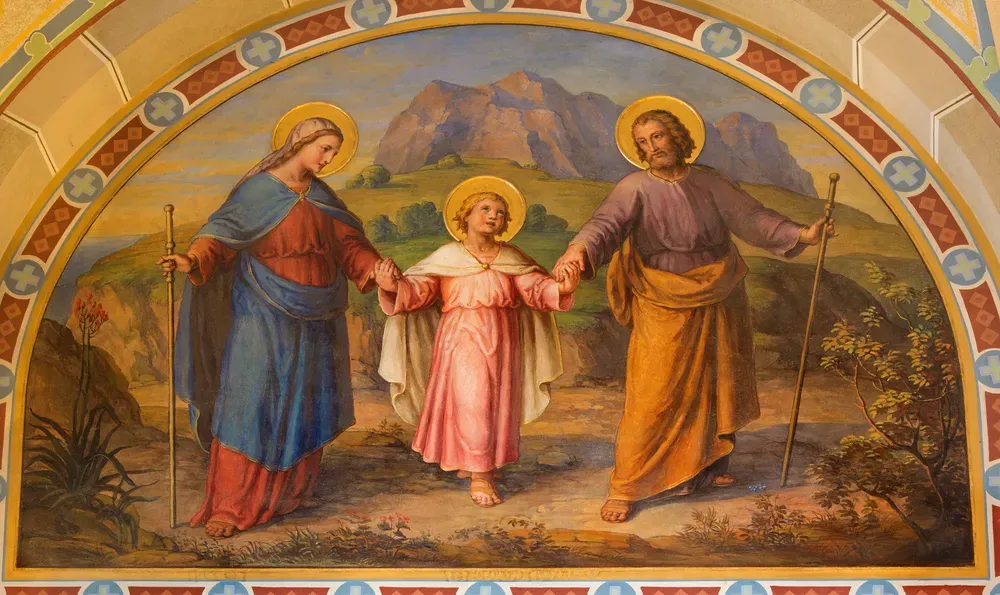As the Book of Acts recounts, St. Stephen was a deacon who was the first martyr after the Resurrection of Jesus. He was killed for preaching Christ as the fulfillment of the Old Testament. One of the witnesses of his death was a man named Saul, the future St. Paul.
The Holy Innocents, too, are considered martyrs. They died in place of Jesus when Herod sought to kill all boys under 2 years old.
On Dec. 27 the Church marks the feast of St. John the Apostle, Jesus’ “beloved disciple.” John was a great evangelist and credited with authoring the Gospel of John and three letters of the New Testament. Many credit him with authoring the Book of Revelation.
The feast of the Holy Family continues the story of Jesus, Mary, and Joseph with the flight into Egypt. It usually falls on the Sunday after Christmas. This year, though, the celebration of the Holy family falls on Friday, Dec. 30. This is because the Sunday after Christmas this year is the Solemnity of Mary, Mother of God.
The solemnity of Mary, Mother of God looks to the role of Mary in the incarnation of Jesus Christ. She is the “Theotokos,” literally the God-bearer. She does not simply carry Jesus’ human nature, nor is she a vessel for his divinity alone. Because Jesus’ divine and human natures are united, she is truly the Mother of God.
The Christmas octave is when so many people have time to rest from a busy year and to spend time with family. One fitting way to observe the octave is to attend daily Mass and prayerfully reflect on the Mass readings.
If you have the talent, try your hand at writing an “Eight Days of Christmas” carol!
Kevin J. Jones is a senior staff writer with Catholic News Agency. He was a recipient of a 2014 Catholic Relief Services' Egan Journalism Fellowship.








